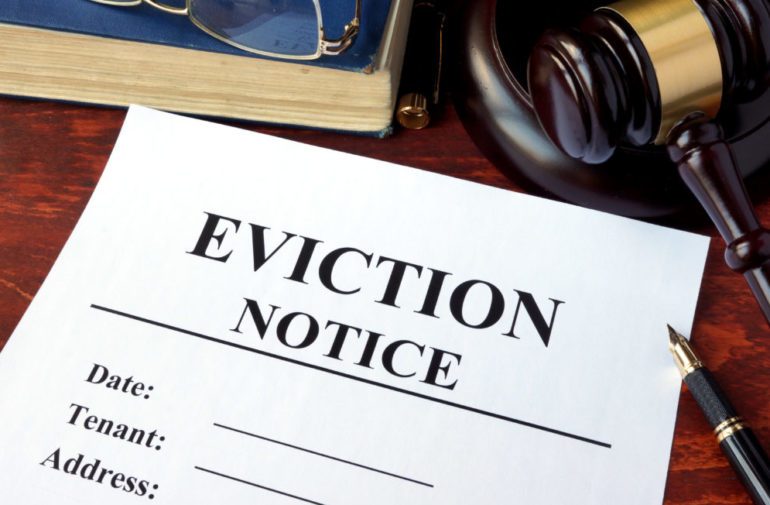Evicting a tenant from a rental property is one of the most unpleasant tasks a landlord faces. Consult the laws in your state carefully, then proceed professionally and courteously. Here is a brief summary from the landlord’s perspective.
Three types of termination. Most states recognize three types of termination notices to tenants.
- Pay Rent or Quit Notices are used when the tenant has not paid the rent. The landlord gives the tenant three to five days to pay or else an eviction suit will be filed in a court of law.
- Cure or Quit Notices are used when a tenant violates a term of the lease. One of the most common examples would be having a pet when the lease forbids one. The tenant is given a set number of days to comply or an eviction suit is filed.
- Unconditional Quit Notices are used in egregious cases such as when the tenant has repeatedly been late paying rent, has seriously damaged the property, conducted illegal activity or has committed serious violations of the lease. This type of notice gives the tenant no time to resolve the issue. Rather, they are ordered to vacate the property with no recourse. Most states put strict requirements upon landlords spelling out when Unconditional Quit Notices are allowed.
- If a landlord has no written lease agreement with tenants, they must be given 30 to 60 days. Each state has specific protections for tenants in these situations. In rent-controlled areas, even more restrictions will apply.
Removing the tenant. After the landlord files an Unlawful Detainer suit, a summons and reason for the complaint is delivered to the tenant. The proceedings can be accomplished within weeks, unless the tenant mounts a defense over such things as the condition of the property, or landlord conduct.
In the end, if legal judgement is found in the landlord’s favor, a law enforcement officer will deliver an eviction notice to the tenant. The tenant must be out within a certain number of days or face physical removal. Landlords may not lock the tenant out or cut off utilities.
If tenants leaves personal property behind, a landlord must be certain they are gone for good, with no intention to return, before disposing of the belongings.
Special circumstances. If a buyer purchases a leased property, the new owner must honor the lease until the end of the lease period. However, the new owner does not have to renew the lease but must give advance notice of desire not to renew. The length of advance notice varies by state.


